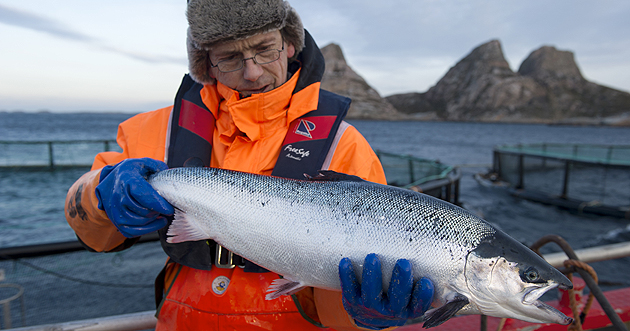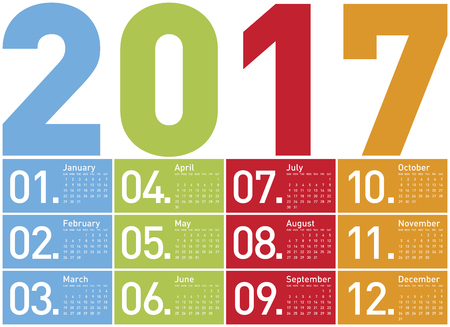2016 Codex Highlights
As a busy period of Codex activities gets underway starting with the FAO/WHO Regional Coordinating Committee for Africa next week (16th January) in Kenya, the Codex Secretariat has conducted a brief review of the highlights of 2016.
39 new texts
The core business in Codex is developing international standards and the 39th Commission adopted 39 new and revised texts last year. These included completion of the Code of Practice on Fish and Fishery Products and the subsequent adjournment of the Fish Committee.
Ensuring good management in the fish industry

Mrs Vigdis S. Veum Møllersen, Senior Adviser in the Codex Office based in the Norwegian Food Safety Authority said: "The aim of the code of practice for fish and fishery products is to provide a user-friendly document as background information and guidance to ensure good management practice in the fish industry. The Code will assist all those who are engaged in the handling and production of fish products (including authorities, industry and stakeholders) in attaining safe and wholesome products that can be sold on all markets and meet the requirements of the Codex standards for specific fish products. The code could also be used in the training of fishers and employees in the processing industry.
Import Export
Another key Codex text adopted in 2016 was the Principles and Guidelines for the exchange of information between importing and exporting countries. This work was completed by the Codex Committee on Food Import and Export Inspection and Certification Systems (CCFICS).

CCFICS is hosted by Australia and the host secretariat said: "the development of this guidance in such a short timeframe is a credit to Codex and highlights its ability to address emerging issues and the needs of members in a timely manner with a high level of engagement.
"This work is highly relevant to the international trading environment. The guidance developed is to assist the competent authority of the importing and exporting countries to identify when the exchange of information may be necessary and what information is essential for the assessment of the relevant component(s) of the National Food Control Systems and to simplify and harmonize the information exchange process."
Re-establishing a Task force on Antimicrobial resistance
The 2016 Codex Alimentarius Commission acknowledged that AMR is a serious public health threat requiring urgent attention by Codex, and that a coordinated approach was needed at the international and national level to combat AMR.
The Commission has established an Intergovernmental Task Force on Antimicrobial Resistance to be hosted by the Republic of Korea which will develop a structured and long term strategy to address this global issue and a preliminary meeting took place in London from 29 November to 2 December 2016.
10 years of Nutrient Reference Values
NRVs-R are used in the nutrition labelling of foods. They refer to the daily reference intakes for vitamins and minerals for an adult population. According to the Codex Guidelines on Nutrition Labelling the amounts of the vitamins and minerals present in the food should be declared on the label of prepackaged food.
It was a major achievement in Codex finishing 10 years of work on nutrient reference values (NRV) for the general population as part of the implementation of the WHO Global Strategy on Diet, Physical Activity and Health.
Codex Trust Fund - Building Codex Globally
Other key activities in 2016 saw the launch of the new Codex Trust Fund.
Over the next 12 years over 100 countries will be able to seek up to 3 years of support to strengthen their capacity for full and effective engagement in Codex.
The first countries to be supported under the fund are Ghana, Kyrgyzstan, Madagascar and Senegal. Many other countries submitted strong applications and will benefit from ongoing consultations with FAO/WHO to prepare for resubmission in subsequent rounds.
Priorities for 2017

The implementation of new work on AMR will undoubtedly be headline news and a major priority in Codex for 2017. Many other initiatives are underway in all committees including food hygiene and HACCP and ongoing work on nutrition, food labelling, pesticides and veterinary drugs.
All this work takes place with transparency and in public and all information on Codex is freely available on this website.
In Codex we work together to help shape the future of agriculture and food production to ensure that food is safe in every home.
At the heart of the Codex mandate are the core values of collaboration, inclusiveness, consensus building and transparency. Governmental and non-governmental, public and private organizations alike play a vital role in ensuring Codex texts are of the highest quality and based on sound science.
Codex would have little authority in the field of international standard setting if it did not welcome and acknowledge the valuable contributions made by observers. Expert technical bodies, industry and consumer associations
contribute to the standard-setting process in a spirit of openness, collaboration and transparency.
Intergovernmental organizations (IGOs) and international non-governmental organizations (NGOs) can apply for observer status in Codex in order to attend and put forward their views at every stage of the standard-setting process.
 Current Codex Alimentarius Commission
Current Codex Alimentarius Commission
2016 Codex Highlights
As a busy period of Codex activities gets underway starting with the FAO/WHO Regional Coordinating Committee for Africa next week (16th January) in Kenya, the Codex Secretariat has conducted a brief review of the highlights of 2016.
39 new texts
The core business in Codex is developing international standards and the 39th Commission adopted 39 new and revised texts last year. These included completion of the Code of Practice on Fish and Fishery Products and the subsequent adjournment of the Fish Committee.
Ensuring good management in the fish industry

Mrs Vigdis S. Veum Møllersen, Senior Adviser in the Codex Office based in the Norwegian Food Safety Authority said: "The aim of the code of practice for fish and fishery products is to provide a user-friendly document as background information and guidance to ensure good management practice in the fish industry. The Code will assist all those who are engaged in the handling and production of fish products (including authorities, industry and stakeholders) in attaining safe and wholesome products that can be sold on all markets and meet the requirements of the Codex standards for specific fish products. The code could also be used in the training of fishers and employees in the processing industry.
Import Export
Another key Codex text adopted in 2016 was the Principles and Guidelines for the exchange of information between importing and exporting countries. This work was completed by the Codex Committee on Food Import and Export Inspection and Certification Systems (CCFICS).

CCFICS is hosted by Australia and the host secretariat said: "the development of this guidance in such a short timeframe is a credit to Codex and highlights its ability to address emerging issues and the needs of members in a timely manner with a high level of engagement.
"This work is highly relevant to the international trading environment. The guidance developed is to assist the competent authority of the importing and exporting countries to identify when the exchange of information may be necessary and what information is essential for the assessment of the relevant component(s) of the National Food Control Systems and to simplify and harmonize the information exchange process."
Re-establishing a Task force on Antimicrobial resistance
The 2016 Codex Alimentarius Commission acknowledged that AMR is a serious public health threat requiring urgent attention by Codex, and that a coordinated approach was needed at the international and national level to combat AMR.
The Commission has established an Intergovernmental Task Force on Antimicrobial Resistance to be hosted by the Republic of Korea which will develop a structured and long term strategy to address this global issue and a preliminary meeting took place in London from 29 November to 2 December 2016.
10 years of Nutrient Reference Values
NRVs-R are used in the nutrition labelling of foods. They refer to the daily reference intakes for vitamins and minerals for an adult population. According to the Codex Guidelines on Nutrition Labelling the amounts of the vitamins and minerals present in the food should be declared on the label of prepackaged food.
It was a major achievement in Codex finishing 10 years of work on nutrient reference values (NRV) for the general population as part of the implementation of the WHO Global Strategy on Diet, Physical Activity and Health.
Codex Trust Fund - Building Codex Globally
Other key activities in 2016 saw the launch of the new Codex Trust Fund.
Over the next 12 years over 100 countries will be able to seek up to 3 years of support to strengthen their capacity for full and effective engagement in Codex.
The first countries to be supported under the fund are Ghana, Kyrgyzstan, Madagascar and Senegal. Many other countries submitted strong applications and will benefit from ongoing consultations with FAO/WHO to prepare for resubmission in subsequent rounds.
Priorities for 2017

The implementation of new work on AMR will undoubtedly be headline news and a major priority in Codex for 2017. Many other initiatives are underway in all committees including food hygiene and HACCP and ongoing work on nutrition, food labelling, pesticides and veterinary drugs.
All this work takes place with transparency and in public and all information on Codex is freely available on this website.
In Codex we work together to help shape the future of agriculture and food production to ensure that food is safe in every home.
 Codex and Observer
Codex and Observer
around the world since ancient times.
We might not always know where it comes from,
but we expect it to be available, safe and of good quality.










Leave a comment